After controversy over changes to the OGL, Wizards of the Coast backs down offers D&D content via Creative Commons
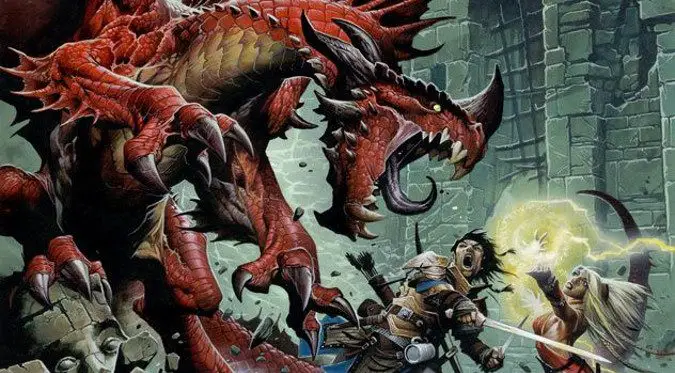
Next year will be the 50th anniversary of Dungeons & Dragons, and in anticipation of the event Wizards of the Coast has been updating the Open Gaming License (OGL) that allows third parties to publish D&D-compatible content… and the changes weren’t popular. A leak of the updated OGL included draconian content policies as well as demanding revenue reporting and a cut of the profits for sales of D&D-compatible publications produced under the OGL.
Since that leak, the D&D community has been in full revolt, protesting the game by cancelling D&D Beyond subscriptions (to the point where the subscription management page was pulled offline), while major TTRPG publishers have banded together to create their own open license for creating content. Wizards responded by toning down the language and publicly publishing the revised OGL for player feedback, but the response was universally negative. After weeks of community protest, Wizards of the Coast backed walked back all proposed changes the OGL and released the full Systems Resource Document (SRD), which allows third parties to freely use D&D rules, classes, spells, and monsters.
It’s been a few wild weeks for the D&D community, but things finally seem to have settled down. But if you’re having trouble figuring out exactly what’s been happening, aren’t sure what the OGL or SRD are, or just want to know what the heck everyone is up in arms about, we’ll break it down for you. Here’s what you need to know about updates to the OGL and what they mean for the TTRPG community.
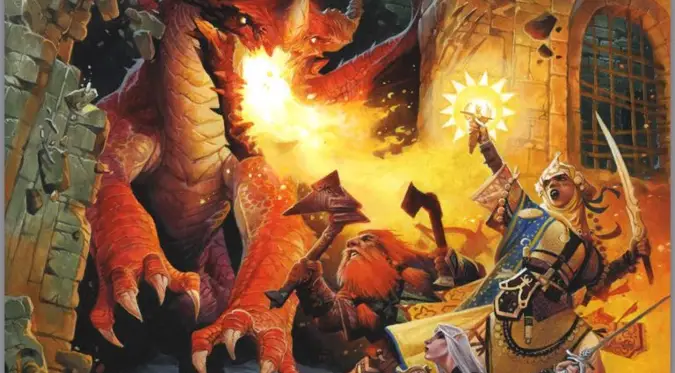
How the OGL helped D&D grow
In 2000, Wizards of the Coast introduced the Open Gaming License (OGL) that allowed anyone to use D&D’s System Reference Document (SRD)— basically the core rules of D&D — to make and sell products that are compatible with Dungeons & Dragons. Think of it like modding a video game — fans of the game can create their own adventures and settings that follow the D&D rules, and it’s easy for anyone who knows D&D to pick up this third-party content and add it to their home game. Think of it like how fans modded the original Warcraft 3 to create the original Defense of the Ancients — the OGL allows you to build anything you want on top of the D&D framework.
And there’s a massive amount of third-party content available. Online stores like the Dungeon Masters Guild sell thousands of titles, with new adventures, monsters, classes, spells, NPCs, settings, and a whole lot more that you can use in your D&D game. Independent creatives bringing their own ideas and energy to D&D have helped the game flourish. Some larger TTRPG companies — including Paizo and Green Ronin — got their start making content via the OGL.
The OGL has given rise to a small industry of people churning out content for D&D, which ultimately made D&D practically synonymous with TTRPGs.
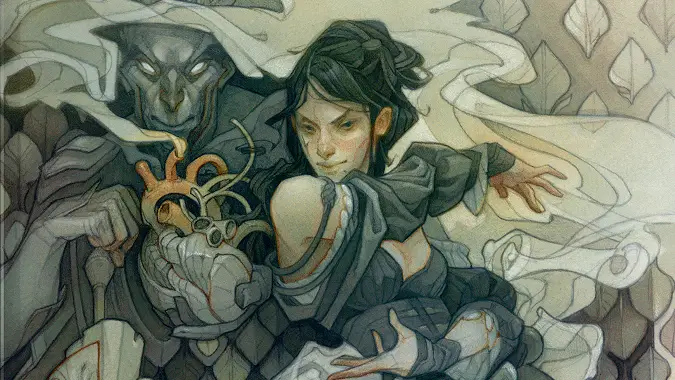
Can Wizards of the Coast revoke the OGL?
Wizards of the Coast has made new versions of the OGL before… and it hasn’t worked well. In 2008, the company released D&D 4e content under the more restrictive Game System License (GSL), people simply didn’t make content for 4e, but continued creating content for 3e, which was available under the OGL. When D&D 5e was released, it once again used the OGL to allow third party publishers to create their own content.
So even if Wizards of the Coast made new licenses, the original OGL would remain. That would mean people could continue to create 5e-compatible content using the OGL, even if the next edition of D&D did something different. This is even codified in the current OGL, which states creators can use any version of the OGL to publish content:
Wizards or its designated Agents may publish updated versions of this License. You may use any authorized version of this License to copy, modify and distribute any Open Game Content originally distributed under any version of this License.
A FAQ Wizards of the Coast published in 2001 offered further reassurance that the company wouldn’t pull the rug out from under creators:
Q: Can’t Wizards of the Coast change the License in a way that I wouldn’t like?
A: Yes, it could. However, the License already defines what will happen to content that has been previously distributed using an earlier version, in Section 9. As a result, even if Wizards made a change you disagreed with, you could continue to use an earlier, acceptable version at your option. In other words, there’s no reason for Wizards to ever make a change that the community of people using the Open Gaming License would object to, because the community would just ignore the change anyway.
But in the new updated version of the OGL, Wizards of the Coast intended to do something different: a leaked version of OGL 1.1 presented a license that was far more restrictive than the 1.0a license in use now. Further, it appeared that WotC intended to de-authorize the current OGL, making all content creators use OGL 1.1.
There’s even a question as to whether the core D&D mechanics are even subject to copyright. According to the American Bar Association:
…the systems or processes that make up the core of a game—generally referred to as the “game mechanics”—are not subject to copyright, even though the written rules, game board, card artwork, and other elements—often referred to as the “theme” of the game—may be. Game mechanics can be as simple as “roll dice and move a token along a track,” or far more complex. Regardless of the complexity or originality of a given game’s systems and processes, its game mechanics will likely not be protected by copyright.
Specific aspects of Dungeons & Dragons — like names, logos, art, and so on — could be protected under trademark. Even game mechanics may be patentable if they’re specific enough. In fact Wizards of the Coast did hold a patent for basic Magic: the Gathering gameplay, but it didn’t prevent other trading card games from emerging that were very similar. I am not a lawyer, but you can’t necessarily copyright game rules. There are a lot of games out there right now that don’t call themselves Dungeons & Dragons, but are basically exact copies of earlier editions of the game, just using different language to get those same rules across.
But if Wizards wants to press the matter and try to revoke the original OGL to force content creators into using OGL 1.1, Paizo says it’s willing to challenge the matter in court.
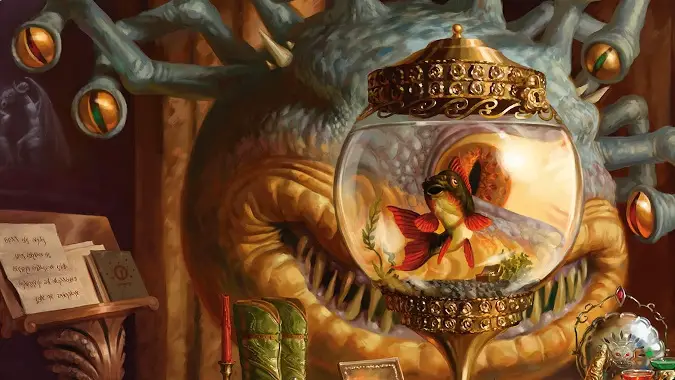
The problems with OGL 1.1
The leaked version of the OGL bristles with so many red flags it’s like a giant porcupine ran through a toreador supply shop. The new license would require creators who sell D&D content to register anything made under the OGL 1.1 and report revenue generated by this content. By registering, creators would give Wizards of the Coast a “nonexclusive, perpetual, irrevocable, worldwide, sub-licensable, royalty-free license to use that content for any purpose.” Essentially, Wizards could take whatever they wanted from whatever anyone published and do whatever they liked with it.
Wizards would also get a share in the profits. Kickstarter campaigns that created OGL 1.1 content would have to give WotC a 20% cut, and projects created on other crowdfunding platforms would have to give WotC a 25% cut. Highly successful creators making more than $750,000 per year from OGL 1.1 content would also have to give WotC a 25% cut.
On top of that, OGL 1.1 gives Wizards full power to terminate or change the agreement in any way, at any time, for any reason, so even if you tried to follow the rules, the rules could change. And because Wizards of the Coast wants to de-authorize the original OGL, any product currently published under OGL 1.0a would have to be republished under OGL 1.1 and follow these rules.
If you want to see for yourself, you can look at the complete leaked OGL 1.1 here, and if that link doesn’t work there’s a mirror here.
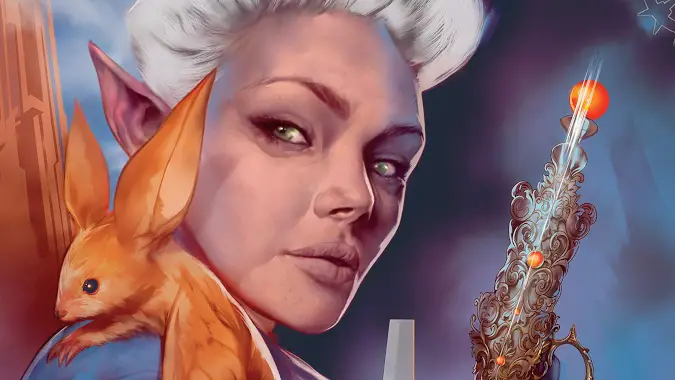
Wizards of the Coast has backed down and released the SRD under Creative Commons
The community backlash against this agreement has been intense, and in a tremendous understatement Wizards of the Coast published a response saying “it’s clear from the reaction that we rolled a 1.” And so Wizards tried again, presenting what it now called OGL 1.2 for player feedback. It rolled back the worst of the leaked OGL 1.1: it didn’t claim rights to content published under the OGL and it didn’t include any royalty structure. It even included the release of the base game rules under a Creative Commons license… but remember, we were just discussing how game rules weren’t actually something Wizards of the Coast could patent, copyright, or trademark, so this was a rather weak gesture. And the company held firm on deauthorizing the original OGL and forcing everyone to use the new version.
But after reviewing feedback, Wizards has completely backed down. There will be no OGL 1.2 and the entire 5e SRD will be released under a Creative Commons license that makes it available to everyone, irrevocably, forever.
Kyle Brink, Executive Producer of Dungeons & Dragons, presented the situation in stark terms:
When you give us playtest feedback, we take it seriously.
Already more than 15,000 of you have filled out the survey. Here’s what you said:
- 88% do not want to publish TTRPG content under OGL 1.2.
- 90% would have to change some aspect of their business to accommodate OGL 1.2.
- 89% are dissatisfied with deauthorizing OGL 1.0a.
- 86% are dissatisfied with the draft VTT policy.
- 62% are satisfied with including Systems Reference Document (SRD) content in Creative Commons, and the majority of those who were dissatisfied asked for more SRD content in Creative Commons.
These live survey results are clear. You want OGL 1.0a. You want irrevocability. You like Creative Commons.
The feedback is in such high volume and its direction is so plain that we’re acting now.
- We are leaving OGL 1.0a in place, as is. Untouched.
- We are also making the entire SRD 5.1 available under a Creative Commons license.
- You choose which you prefer to use.
This Creative Commons license makes the content freely available for any use. We don’t control that license and cannot alter or revoke it. It’s open and irrevocable in a way that doesn’t require you to take our word for it. And its openness means there’s no need for a VTT policy. Placing the SRD under a Creative Commons license is a one-way door. There’s no going back.
Our goal here is to deliver on what you wanted.
So, what about the goals that drove us when we started this process?
We wanted to protect the D&D play experience into the future. We still want to do that with your help. We’re grateful that this community is passionate and active because we’ll need your help protecting the game’s inclusive and welcoming nature.
We wanted to limit the OGL to TTRPGs. With this new approach, we are setting that aside and counting on your choices to define the future of play.
Here’s a PDF of SRD 5.1 with the Creative Commons license. By simply publishing it, we place it under an irrevocable Creative Commons license.
It’s a big victory for the community that lets us use D&D as a framework to tell our own stories, without restrictions, reporting, or royalties. But it may not be enough to save the game in the all-important court of public opinion, because the fact that Wizards of the Coast even tried to do this has done a lot to tarnish the company’s relatively fan-friendly reputation.
Before Wizards ditched the OGL 1.2, content creators had already begun looking for new game systems that they could use — and they haven’t stopped. Small press publishers including Paizo, Green Ronin, Kobold Press, Chaosium, Legendary Games, Rogue Genius Games, and others are coming together to create a new, system-neutral gaming license called the Open RPG Creative License (ORC). The goal is to preserve the spirit of the OGL with a creator-friendly licensing system that anyone can use.
One thing is certain: Wizards of the Coast shot itself in the foot, and while backing down was the best thing the company could have done, it may not be enough. The OGL drove some portion of D&D’s success by encouraging people to make and publish their own D&D content. Third parties publishing adventures and live-streaming original shows has turned Dungeons & Dragons into a household name. Now, by attempting to cash in on that success, Wizards of the Coast has handed other companies a chance to reap a goodwill bonanza that could shake up the TTRPG space forever.
Originally published January 17, 2023; updated February 2, 2023
Please consider supporting our Patreon!
Join the Discussion
Blizzard Watch is a safe space for all readers. By leaving comments on this site you agree to follow our commenting and community guidelines.
 @MatthewWRossi
@MatthewWRossi



